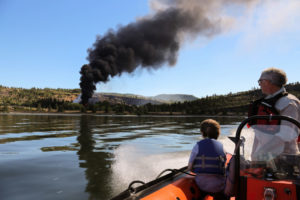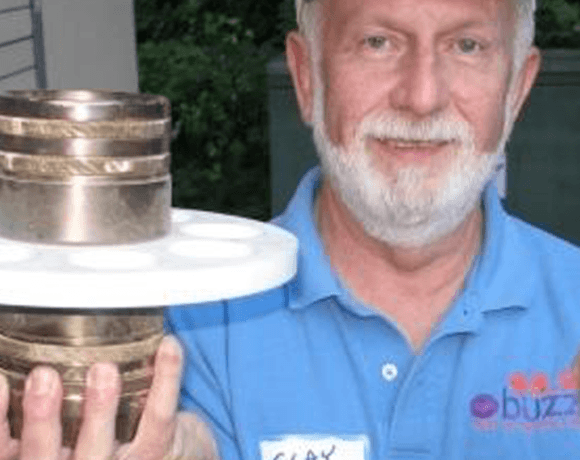Connor Henricksen
 Connor does some of everything: filling in as a host on weekdays, hosting “Weekend Edition,” and being a news producer helping bring you news on air and online.
Connor does some of everything: filling in as a host on weekdays, hosting “Weekend Edition,” and being a news producer helping bring you news on air and online.
He’s been a public broadcasting listener for as long as he can remember, growing up in the Tacoma area and traveling frequently to a family property near Twisp, Washington.
“Every car ride, it was the public radio station until we hit Snoqualmie Pass. When the signal broke up in the Pass, then and only then is when my parents would pop in the mixed tapes.”
Connor’s held some interesting jobs. With the U.S. Geological Survey, he saw the area behind Elwha Dam, right after it was removed. And for two summers he was a wildland firefighter in north central Washington.
He enjoys being outdoors and hiking. His favorite spot is in the North Cascades, where he likes to explore old mine shafts and caves.
Connor is a self-proclaimed news junkie. If there is one story he wishes he could cover, it would be one on the “Apple-Chucking Hooligan,” the person who threw exactly 3 apples on the roofs of houses in Portland and Vancouver. He says he wants the full story on what he described as “the best thing the Associated Press ever tossed my way.”
A connoisseur of all kinds of music, Connor is especially into punk rock. “My dad’s fault,” he says, half-joking. His other love is feline: “Everyone knows my cat is my life.”
Host &
News Producer
My Posts

‘Brave New World’ Meets ‘The Handmaid’s Tale’ In Sophie Mackintosh’s New Novel
In the world of Blue Ticket, girls are issued either blue tickets or white ones on the day of their first periods. Blue tickets grant a career but no children; white tickets mean home and family.

Idaho Public School Enrollment Drops For First Time Since 1997, Virtual Schools See Big Gains
Idaho public schools are serving 4,554 fewer students than they did last school year, marking the first time since 1997 that the state has seen a decline in enrollment.

Oil Train Safety Rules Getting Rolled Back By Trump Administration
The Trump administration is rolling back a requirement for trains carrying highly explosive liquids — like the oil trains that run through the Columbia River Gorge en route to Northwest refineries.












